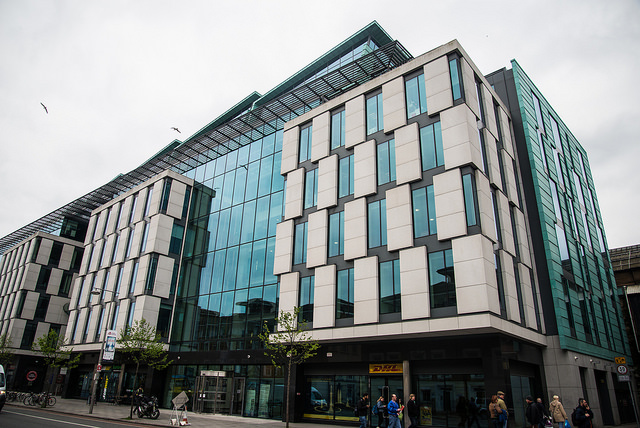Ireland was ranked number one in the world for immunology research in 2019 and ranked in the top ten across a number of scientific disciplines, Science Foundation Ireland (SFI) has announced in its annual report.
Trinity is considered to be the centre of immunology research in Ireland, and TBSI researchers are currently at the frontline of research fighting the coronavirus pandemic.
The report, launched yesterday by Minister for Higher Education Simon Harris, also highlighted the refunding of six SFI research centres and the introduction of the new SFI Future Innovator Prize as key achievements in 2019.
In addition, it detailed new initiatives including the SFI Frontiers for the Future Programme and the establishment of SFI Centres for Research Training for PhD students.
In the foreword to the report, Chair of SFI Peter Clinch said: “Covid-19 has presented many challenges for Ireland and has also been challenging for SFI as an organisation. However, the crisis has provided the clearest example yet of why capacity building in research is essential.”
The Frontiers for the Future Programme was set up last year as a funding scheme to allow for “high-risk, high-reward” projects with grants from €200,000 to €1 million. It supplements the frontier research funding garnered by SFI researchers in 2019 in the form of 15 grants from the European Research Commission (ERC), up from six grants awarded in 2018.
Additionally, the new SFI Centres for Research Training launched with the goal to teach more PhD students the data skills needed for industry work. Through industry and higher education partnerships, over 700 PhD students received specialised training in data science, artificial intelligence and more.
The report highlights the importance of industry partnerships to SFI, with six SFI research centres approved for six-year research programmes supported by €230 million from 170 industry partners.
The SFI research centres are responsible for turning out some of the highest impact research in Ireland, with SFI-funded publications being 2.69 times more likely to be “star” publications than the global average.
One contributor is the SFI Research Centre for Advanced Materials and BioEngineering (AMBER), based in Trinity. AMBER’s Principal Investigator, Prof Valeria Nicolosi of TCD, was featured in the SFI annual report as a “Spotlight on Excellence” for her work on nanomaterials.
Prof Nicolosi and her team made multiple discoveries on battery materials in 2019, including a breakthrough that can significantly increase battery life published in Nature Communications.
Research like Prof Nicolosi’s also attracted external EU funding, and she became the first six-time ERC grant recipient in 2019. For the €188 million invested by SFI in 2019, SFI researchers won an additional €93 million in EU funding and €223 million in total external funding.
Looking towards the future, the report details SFI’s focus on innovation with the SFI Future Innovator Prize, a first foray into challenge funding which saw 12 teams compete for €1 million to “develop disruptive solutions to societal issues.” Facing the coronavirus pandemic and its related fallout, there are no shortages of societal challenges which SFI are preparing to face.
Director General of SFI Prof Mark Ferguson, said in the report that “we must build on our significant achievements and now help Ireland to prepare for its future”.
“As has been clearly evident in managing both COVID-19 and Brexit, research and innovation are key – providing the ability to respond quickly and effectively, followed by pivoting to new opportunities”, he added.







